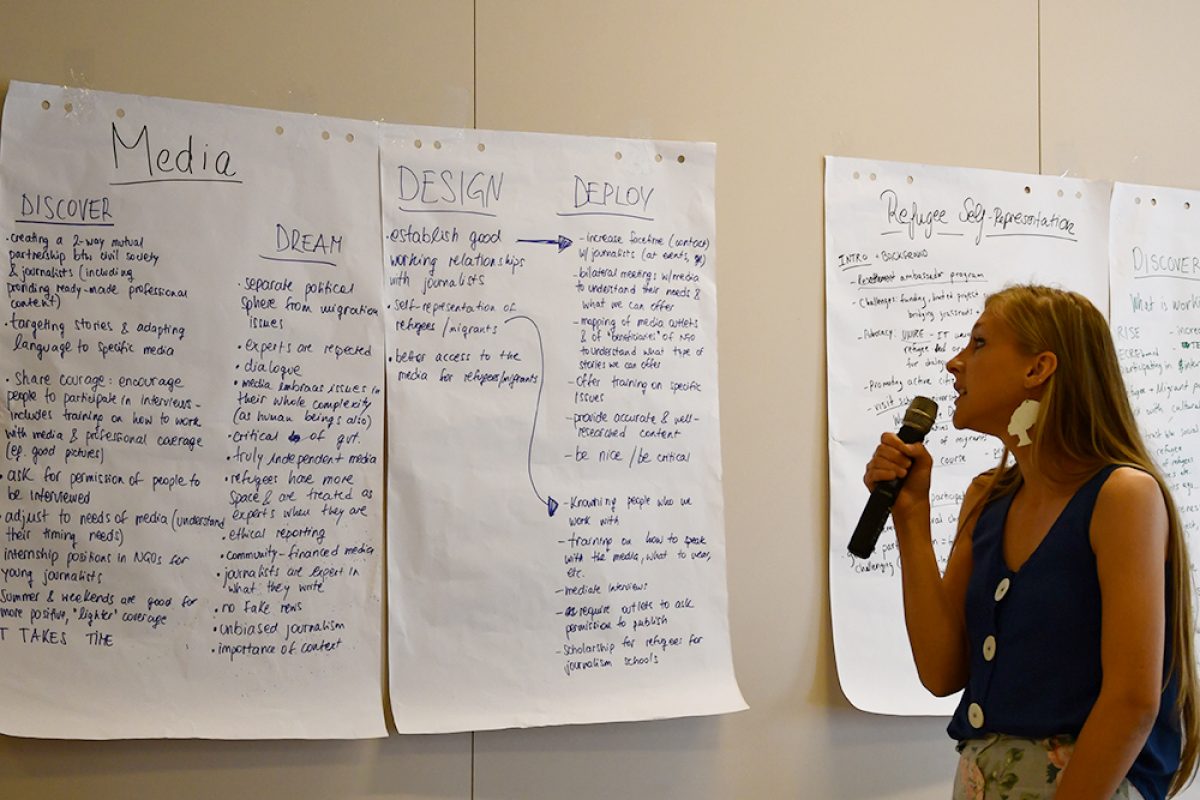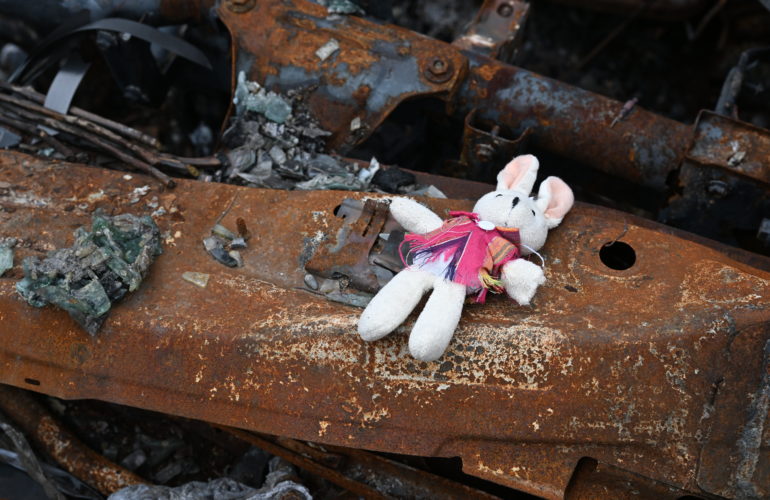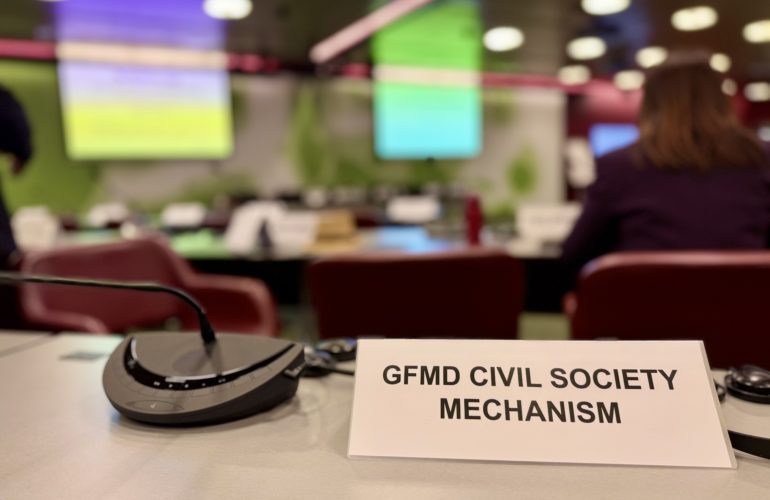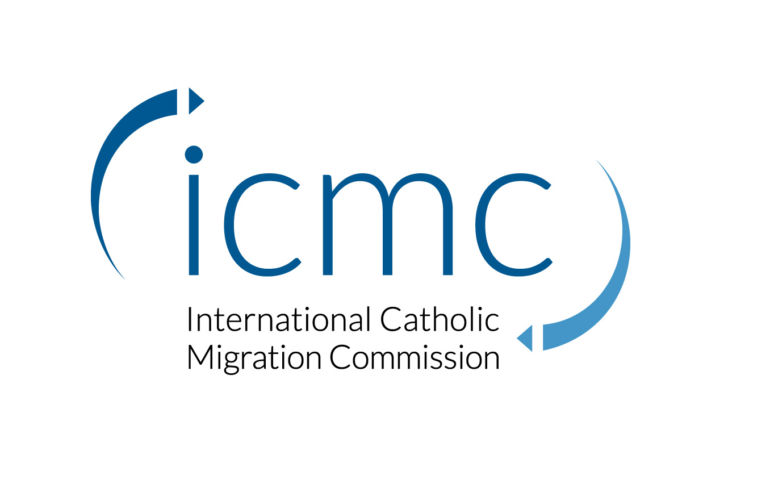How to Counter the Misrepresentation of Migrants and Refugees

The influx of migrants and refugees arriving in Europe since 2015 has triggered unease among apprehensive people. Their worries have often been magnified by politicians and media actors who take advantage of sensationalist and negative views on immigration. Organizations working with migrants and refugees are developing strategies to counter these “negative narratives” and promote a more balanced and fair representation.
Participants from 23 organizations and 15 countries gathered in Bucharest from 26 to 28 June to discuss how best to change public perceptions of uprooted people, which are often driven by manipulative political and media discourse. The conference, which brought together refugees and representatives of NGOs, UN agencies and governments, was organized by the International Catholic Migration Commission (ICMC)’s Europe office’s SHARE Network and Jesuit Refugee Service (JRS) Romania.
With a general focus on the situation in Central and Eastern Europe, specific topics discussed included the media’s role and responsibility in shaping public opinion, creation of spaces for encounter between migrants and locals, and promotion of refugee self-representation.
Reporting on Migration Issues: The Media’s Role in Shaping Perceptions
Irene Teodor, a border monitoring assistant at JRS Romania, presented an overview of migration press coverage in the country since the number of arrivals via the Black Sea began to increase in 2017. She identified three phases in the reporting.
In the first phase, migration was presented as a humanitarian crisis, and migrants were depicted merely as victims. This phase was followed by a more negative portrayal of migrants, with the media beginning to use terms such as “Muslim invasion” and “worrying numbers”. The final phase involved a polarization of opinions within the media, with the emergence of fear and conspiracy theories on the one hand, and publication of success stories on the other.
This tendency towards sensationalist reporting of the migrant influx is not limited to Romania. Participants shared similar examples from across Europe.
Francesca Pierigh presented the results of a media monitoring project spanning seven European countries conducted by the World Association of Christian Communication in 2017. Among the findings are the low number of refugees and migrants represented in the news, a strong tendency to consider migration solely as a political issue detached from its broader context, and a low number of references to the role of human rights and refugee law.
Moreover, when reporting on refugee-related stories, media outlets often reduced refugees’ identities by limiting their description to that of “migrant” and omitting to quote or interview them. Women refugees were particularly absent in the stories.
The media monitoring project findings suggest a correlation between the depiction of migrants and refugees in the media and national public opinion on migration. In countries where refugees have a voice in the media and where their rights are mentioned, people are less likely to wish for migration to diminish.
Providing a Balanced Narrative
However, public opinion on migration may not be as polarized as polls suggest. Maïder Piola-Urtizberea from the organization More in Common presented the findings of a research project on French Catholics’ views on migration. If at first glance this group seems divided between those in favor of migration and those opposed to it, a closer look shows that the majority are undecided, torn between a sense of solidarity and the fear that opening the doors to migration will have negative consequences on cultural and economic stability.
How to help people who are ambivalent towards migration overcome their fears? Piola-Urtizberea suggests three ways: providing opportunities for encounter with refugees who share similar stories and values; creating or supporting initiatives that benefit economically insecure locals as well as migrants; and giving a platform to pro-migration influencers.
Furthermore, credibility relies on balanced narratives that profile migrants and refugees with dignity while also addressing the challenges related to welcome and integration. Hélène Soupios-David from France Terre d’Asile noted the importance of avoiding “positive biases” and romantic idealizations of migrants and asylum seekers. These tendencies do not reflect reality and minimize both the concerns of fearful citizens and the challenges faced by migrants.
Above all else, balanced communication requires allowing refugees to express themselves through personal encounters with community members and having a voice in the media.
Promoting Encounters
Participants shared examples of opportunities for encounter between local populations and migrants and refugees. These include encouraging newcomers and locals to join activities such as book clubs, sports activities, roundtables, and music and dance events.
Bistra Ivanova, from the Multi Kulti Collective in Bulgaria, explained how culinary events allowed her organization to use food as a tool for integration. By preparing and enjoying meals together, locals and foreigners get a chance to sit at the same table and exchange personal stories. The fact that the activity does not fixate on migrants’ foreignness but instead focuses on the trendy topic of gastronomy allows participants to concentrate on their similarities rather than on their differences.
Refugee Self-Representation in the Media
Participants also presented several inspiring initiatives to promote the inclusion of refugee voices in the media. Yagoub Kibeida, executive director of Mosaico Azioni per I Refugiati in Italy, introduced the Refugees’ Ideas and Solutions for Europe network.
Led by refugees themselves, the network organizes initiatives such as flash mobs and trips to Lesvos island, an important point of arrival for refugees in Greece. Their goals are to help people understand the reality of refugees’ lives, to empower refugees to have their voices heard, and to support integration.
Lama Jaghjougha, project officer for the European Association for Viewers Interests, an NGO that advocates for media literacy, presented Building Trust, a campaign to train migrants and refugees how best to tell their own stories.


